The following is a guest post from Eric Menke, Partner at The CEO’s Right Hand, Inc. and former Private Equity Investor.
—
Anyone looking in on the startup ecosystem today could easily assume that founding a start-up isn’t that difficult. Given the huge spike in the number of start-ups being founded recently, you would think it must be easy. After all, there is currently an ungodly amount of capital chasing ideas of all sorts. It feels like we are back to the days of 2006-2007 where if you have a pulse, you get the capital.
Strategic players have doubled down on their efforts to acquire innovation at every turn creating a “bid” underneath the market for most technology innovation. Support systems for start-ups have grown rapidly with the proliferation of incubators. The explosion of co-working and co-creating office space has created a dynamic environment where companies can cross-fertilize ideas and combine forces on projects. With all this support, capital, and collaboration in place, it has to be easy to start and run a start-up right?
To answer this question, I went directly to the source. I reached out to several start-up CEOs to ask what their three biggest challenges were currently in growing their businesses. Their answers, surprisingly, were quite varied. Here is an excerpt of the list of challenges faced by CEOs as described by them.
Money, Foreign Entrepreneurship, and Industry Connections
–
Raul Triveno, CEO of Quonter
Quonter is a disruptive social cash back platform where you can earn and share cash back with friends. For every dollar earned for your purchases, as well as your friends’, you can get cash back and donate to charity too.
- Money! Without real capital you are nobody. But if you have a great concept money will come!
- Not being American/American citizen creates some impediment. Foreign entrepreneurship is difficult.
- Not being from the US is tough. Connections are everything. You need to be known in the startup ecosystems.
No matter how long you are in the business, trying to establish a brand, adjust to, or match the competition, and keep your business profitable, is challenging.
Without the financial backing, credibility in the space, let alone the resources to launch your business becomes a valid concern. However, as a startup founder there is an upside in that you might have a pool of capital from a business previously sold or a steady stream of revenue you can use to fund a new business’s cash flow.
Awareness, Credibility, Sales Pipeline
–
Seth Rao, CEO of FirstEigen
FirstEigen develops database solutions utilizing autonomous data validation and machine learning.
- Increasing awareness of our company.
- Increasing credibility of our company’s technology and brand.
- Building a robust sales pipeline.
As a founder, you’re often expected to be the visionary and generate the ideas. When a competitor emerges, it is often your responsibility to come up with a response plan. When your team or your product hits an obstacle, it is your job to come up with an alternative. However, the advantage of all this is getting to use creative thinking, opportunity and team building. Be strategic and varied: online marketing, search engine optimization, email marketing, and social media are great starting points.
Lack of capital for molecule development, Lack of regulatory standards, Lack of Reimbursement Standards
Will Rosellini, CEO of Nexeon
Nexeon Medsystems, Inc. is a global medical device company focused on providing innovative neuro-stimulation products that improve the quality of life of patients suffering from debilitating neurological disease.
- Lack of early-stage venture capital that finances the work needed to identify a lead molecule or medical device prototype and to develop it to the proof-of-concept stage.
- Lack of certainty over whether the molecule or prototype is safe and effective, the questionable stability of the regulatory standards to which clinical trials are designed, and the likelihood that large follow-on investments for commercial development can be secured.
- Lack of clear regulatory and reimbursement policies which have a profound impact on the amount of capital that can be raised for bio tech.
Lack of financing for product development is a common challenge. However, understanding what business financing is right for you, top loan products, or crowdfunding opportunities and availing yourself to these resources is key. Consider several options here. The “unknown” factor is relatable; as is whether a prototype/product is safe and effective, meets regulatory standards and is designed to attract and secure investors. It is often the most challenging, with so many factors to consider as an emerging business. Remain focused on the upside; that you are creating a differentiated space in the market. Spend some time differentiating your business so your message speaks to a target market.
My takeaway is that no matter how easy it looks, every start-up has challenges which are unique to their industry, their company and stage of development.
No matter how much capital is available, there is always the challenge of getting the right capital. Building a real sustainable business is difficult, no matter much capital and support are available. Customers are more difficult to cultivate in an increasingly busy marketplace, sales pipelines take longer to build, and connections DO still matter.
You had the confidence to make this leap into a startup in the first place. Don’t forget that! You are RESILIENT! If you can stay focused on the positives to every challenge, to systematically and quickly work your way through these any of the aforementioned obstacles, you will be well on your way to establishing yourself as a strong leader and a successful entrepreneur, equipped with the skills to tackle new or varied challenges and prepared to handle any situation in the most volatile yet most impactful months of your business.



